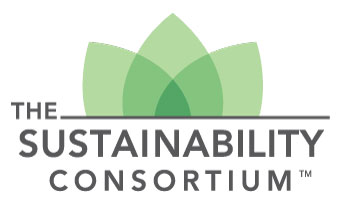Corporate Sustainability on the Main Stage at Rio+20 Conference
As the world prepares for the United Nations Conference on Sustainable Development (Rio + 20), attention is being given to the importance of corporate sustainability on a global scale.
The Rio+20 Corporate Sustainability Forum: Innovation & Collaboration for the Future We Want, will be hosted by the UN Global Compact in collaboration with Rio+20 Secretariat, the UN System and the Global Compact Local Network Brazil from June 15th – 18th 2012 in Rio de Janeiro. The forum, with over 2,000 expected participants will aim to strengthen the business contributions to sustainable development innovation, and to stimulate broader collaboration between companies, government, civil society and the UN.’
The Consortium will be well represented by a number of member companies who are attending the meeting. Dow Chemical, who joined The Consortium in 2011 and is an active participant in the Home & Personal Care Sector , is very enthusiastic to be attending the event. “Rio +20 is a unique room for stakeholders to discuss issues related to the growth of a green economy and environmental protection. In this sense, the private sector has a key role in this transformation because they are seeking to deliver innovative and sustainable solutions, collaborating and supporting the development of the green economy,” said Christianne Canavero, Sustainability Associate Director for Dow Latin America. “All the sustainability corporate key themes addressed in the Rio+20 context is highly connected to the TSC strategy and Dow is very proud to be part of this initiative and are always collaborating to the sustainable growth.”
World Wildlife Fund (WWF), another highly valued member of TSC will have a large presence at Rio + 20. WWF has made a huge commitment to corporate sustainability development and the work being completed by The Consortium. “To promote sustainable production that protects biodiversity, WWF works with the business community to develop more responsible product options for consumers,” said Helen van Hoeven. “Given the mounting pressures on our finite planet, WWF works with Consortium members to ensure the indexes adequately reflect on the ground impact from the production of commodities used in rated products. The indexes must become incentives for better and smarter production to stack shelves with sustainable products. Now is the time for businesses to develop solutions that meet the needs of over nine billion people by 2050 while maintaining the planet for future generations.”
“Currently, the United Nations Global Compact encompasses 7,000 business signatories in 134 countries representing approximately 50 million employees. Additional participants in the forum will be associated with the Principles for Responsible Investment (PRI) initiative and the Principles for Responsible Management Education (PRME) initiative. The first comprising 900 investors from 47 countries managing combined assets of 30 Trillion, while the second one orchestrates collaborations with 400 academic institutions in 76 countries.
This global level of engagement and strategic partnerships development approach resonates with the multi-stakeholder nature of the Consortium. Several member organizations and partners will participate at the forum including: BASF, Bayer, Coca-Cola, Dow, Pepsico, P&G, Tec de Monterrey, UC Berkeley, and Unilever,”said Marco Ugarte, Research & Business Development Manager at TSC.
About The Sustainability Consortium
The Sustainability Consortium (TSC) is an independent organization of diverse global participants that work collaboratively to build a scientific foundation that drives innovation to improve consumer product sustainability. TSC develops transparent methodologies, tools, and strategies to drive a new generation of products and supply networks that address environmental, social, and economic imperatives. The Sustainability Consortium advocates for a credible, scalable, and transparent process and system. The organization boasts over 90 members from all corners of business, employing over 57 million people and whose combined revenues total over $1.5 Trillion. The Sustainability Consortium is jointly administered by Arizona State University and the University of Arkansas, with additional operations in the Netherlands and Santiago, Chile. Learn more at www.sustainabilityconsortium.org.
About Dow
Dow combines the power of science and technology with the “Human Element” to passionately innovate what is essential to human progress. The Company connects chemistry and innovation with the principles of sustainability to help address many of the world’s most challenging problems such as the need for clean water, renewable energy generation and conservation, and increasing agricultural productivity. Dow’s diversified industry-leading portfolio of specialty chemical, advanced materials, agrosciences and plastics businesses delivers a broad range of technology-based products and solutions to customers in approximately 160 countries and in high growth sectors such as electronics, water, energy, coatings and agriculture. In 2010, Dow had annual sales of $53.7 billion and employed approximately 50,000 people worldwide. The Company’s more than 5,000 products are manufactured at 188 sites in 35 countries across the globe. References to “Dow” or the “Company” mean The Dow Chemical Company and its consolidated subsidiaries unless otherwise expressly noted. More information about Dow can be found at www.dow.com. For more information on sustainability at Dow, visit www.dow.com/sustainability.
About WWF
WWF, the world’s leading conservation organization, is supported by 1.2 million members in the United States and close to 5 million globally. They combine global reach with a foundation in science, involve action at every level from local to global, and deliver innovative solutions that meet the needs of both people and nature. Van Hoeven directs WWF International’s Market Transformation Initiative, working with major companies and their supply chains to change the way key global commodities are produced, processed, consumed and financed worldwide.


